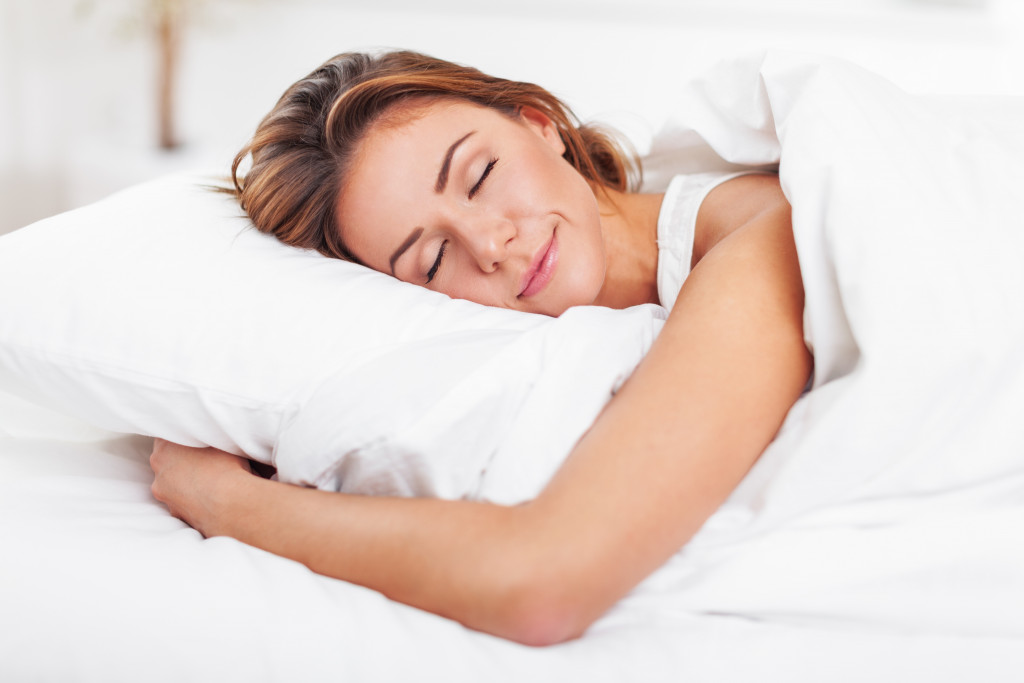Millions of people suffer from interrupted sleep, and the cause is unknown to many. While there are a variety of potential culprits, one often-overlooked source of sleep problems is dental health.
The most common causes of interrupted sleep are snoring, teeth grinding, and sleep apnea. Who would have thought these problems could be addressed in your dental clinic? This article will explore how your dentist can help you sleep better by addressing these dental issues that can interfere with your slumber.
Consequences of Interrupted Sleep
Interrupted sleep can lead to daytime fatigue, sleepiness, irritability, loss of focus, and low productivity. It can lead to mental health problems such as anxiety and depression.
Interrupted sleep can also cause physical illnesses such as high blood pressure, heart disease, and stroke. Depriving the body of deep, restful sleep phases prevents it from undergoing cellular repair and hinders the production of new cells. The body’s natural healing process is disrupted, and the immune system weakens.
If you drive or operate machinery, you can fall asleep and get into a life-threatening accident. You pose a danger to yourself and to others. So if you’re not getting enough sleep, it’s crucial to find out why and address the problem. It’s time to see your dentist.
Sleep Interrupted by Snoring
Some people are woken up by the sound of their own snoring. If not, then their partners are indeed kept awake. Either way, it is a huge problem.
If you snore, chances are good that your dentist can help. Snoring occurs when airflow through your nose and mouth is obstructed, causing the tissues in your throat to vibrate. This vibration produces the characteristic sound of snoring.
Several dental treatments can help reduce or eliminate snoring. One standard treatment is a mandibular advancement device (MAD). This is worn during sleep and helps keep the lower jaw in a forward position, preventing airway obstruction.

Sleep Interrupted by Teeth Grinding
Another potential cause of interrupted sleep is bruxism, or teeth grinding. Bruxism can cause pain and damage to your teeth and jaws. It can also keep your partner awake at night.
Your dentist can help by fitting you with a mouthguard that will protect your teeth from grinding damage. The mouthguard will also help reduce the noise of grinding, so you and your partner can sleep better.
Sleep Interrupted by Sleep Apnea
If you suffer from sleep apnea, you may be at risk for serious health problems. Sleep apnea is a condition in which breathing is interrupted for about 10 seconds or more during sleep. When the brain experiences a loss of oxygen, it sends signals to your body to wake up. That is why you often wake up gasping or snorting, trying to catch your breath.
According to Johns Hopkins Medicine, obstructive sleep apnea is categorized into three levels of severity. You experience from five to 15 apnea pauses per hour in mild obstructive sleep apnea. In moderate obstructive sleep apnea, this occurs from 15 to 30 times per hour. In Severe obstructive sleep apnea, you experience over 30 pauses per hour. This shows that even with mild sleep apnea, you cannot get a whole night’s rest.
In many cases, the person’s body has adapted to sleep apnea so that the waking episodes become brief. The person falls back to sleep and does not even remember waking up. Even if it happens numerous times throughout the night, the person is unaware of having an uninterrupted sleep. The only telltale signs are the symptoms felt during the day.
According to Mayo Clinic, obstructive sleep apnea happens because the muscles at the back of the throat relax more than usual. These are the muscles that support the tongue, the tonsils, the soft palate which is the roof at the back of the mouth, and the uvula which is the tissue hanging from the soft palate. When the supporting muscles relax too much, these structures collapse into each other and the airway closes.
One of the more common devices used to treat sleep apnea is the continuous positive airway pressure (CPAP) machine. A device is placed over the patient’s nose at night, attached to a machine that then blows pressurized air into the nose. This prevents the airway from collapsing and keeps the patients’ breathing uninterrupted.
Many patients could not tolerate the CPAPO machine, though, for several reasons. Some find it difficult to tolerate having air forced into their noses and throats. Others find it claustrophobic. Some find the machine to be noisy.
As an alternative to the CPAO machine, your dentist can provide you with a specially-designed mouthpiece that will help keep your airway open as you sleep. This device is known as an oral appliance and is similar to a mouthguard. It is custom-fit to your mouth and worn during sleep.
Get Help from Your Dentist
The take-home message is that if you are not getting a good night’s sleep, it could be due to a dental problem. Be sure to talk to your dentist about any concerns you have about your sleep. They can help you find the cause of the problem and provide you with treatment that will help you sleep better.

